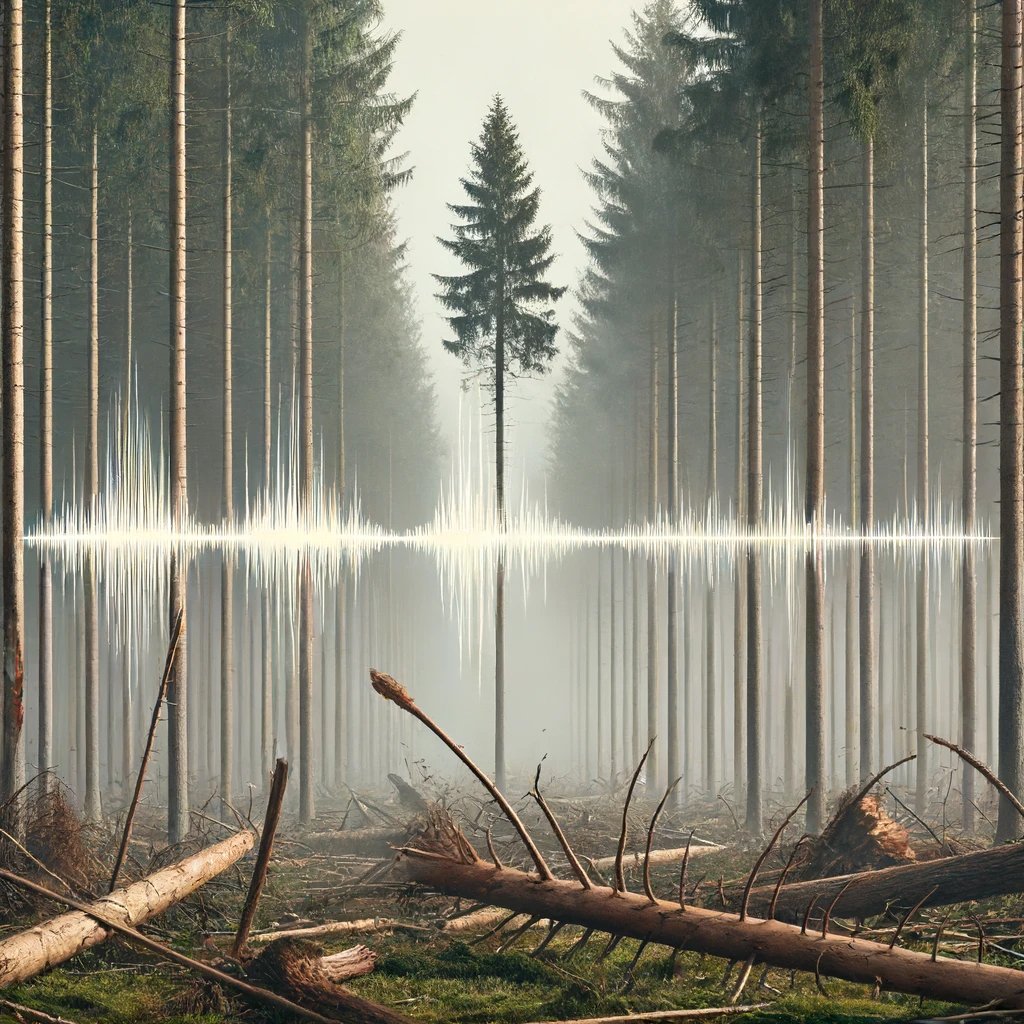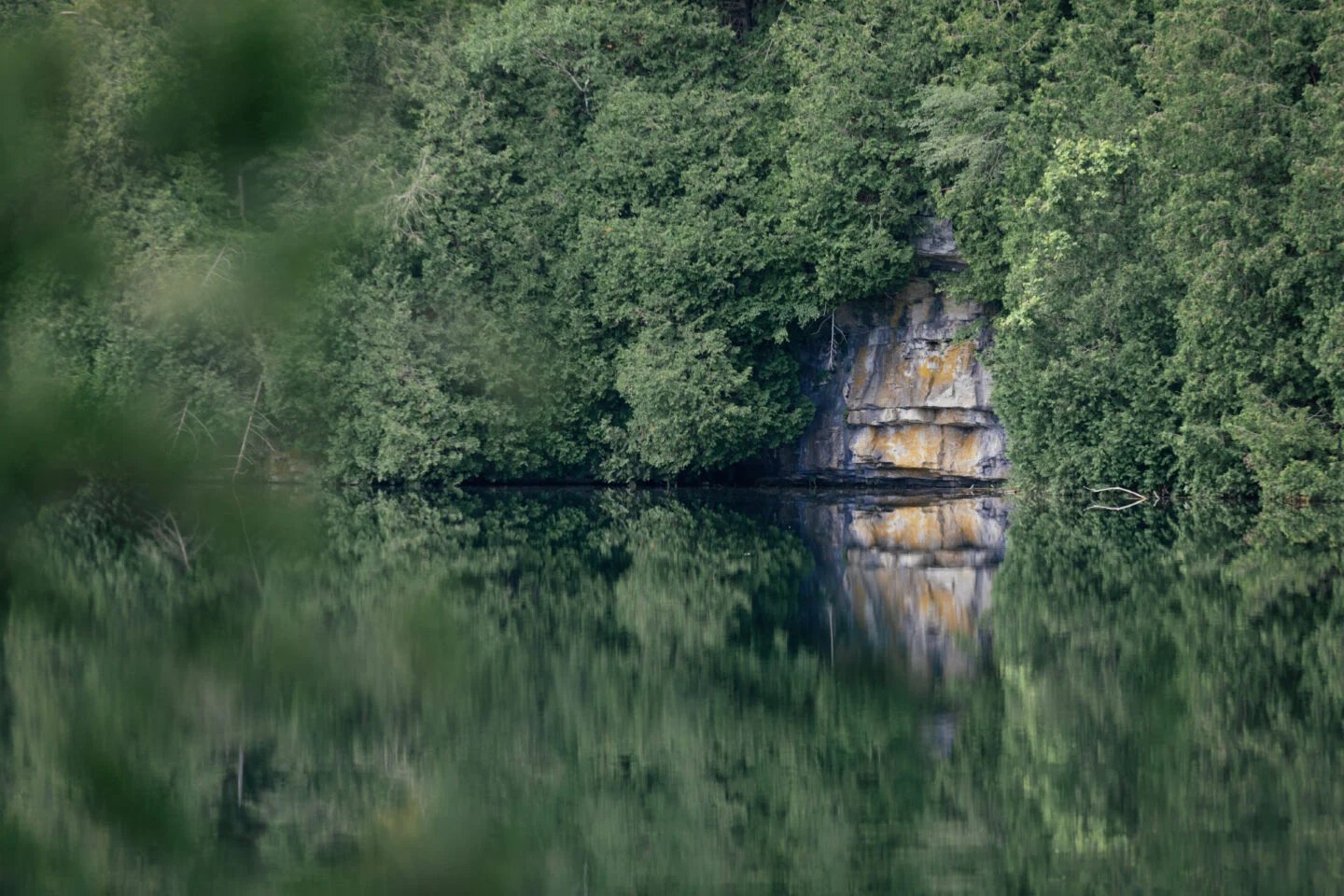
On Ecological Health and Ecoliteracy:

The paradox of life
Why life is not paradoxical in understanding entropy and the passage of time.
The second law of thermodynamics tells us that the universe moving through time to ever more disorder, on the surface this creates a paradox as life and evolution appear to move toward ever greater complexity.
Understanding this unfolding can help us to feel more connected to not just the physical processes of gas and nutrient exchange that sustain us but to being integral to the very passage of time itself as the mechanism of the universe unwinds.
In this article we contemplate how life appears to be a paradoxical phenomenon to entropy see the full article on our website now and perhaps you will feel like your own life is more important and connected to the universe than you had imagined.

Why do we taste?
Why does sugar taste sweet and what does ‘sweet’ even mean?
Why do we taste at all?
These questions are discussed in this article where we dip into the 5 tastes that make up every sensation of food that we eat and we ask the questions why and how?
Everything in biology has a reason and this reason has manifest in our bodies, hard wired into exquisitely complex biochemical pathways so we can make better choices as we consume the nutrients that sustain us but the food industry exploits these neural reward pathways leading to ill health through over consumption.
We look at how an understanding of these pathways can potentially lead us to step above the power of ultra processed foods and reframe them as occasional entertainment rather than anything nourishing.

Where do you end?
At first it seems so obvious, we begin and end with the surface of our skin but this is a rather simplistic notion and there is an underlying metaphysical truth: the boundary of a human extends far beyond the simplistic demarcation of the skin. We are not isolated entities but integral components of a vast, interconnected ecosystem, woven into the very fabric of existence.

Anger
When understood and channelled correctly, anger can be transformative. It can lead to personal growth, healing, and stronger relationships, all grounded in compassion. Working through anger in therapy or self-reflection can uncover underlying issues, leading to healing and the development of healthier emotional patterns. David Whyte’s perspective that “anger is the deepest form of compassion” invites us to reconsider how we view and handle this powerful emotion. By recognising the compassionate roots of anger, we can transform it from a potentially destructive force into one that drives positive change, protects what we value, and strengthens our connections with ourselves and others. Understanding anger in this light encourages us to listen to its messages, use it constructively, and appreciate its role in our emotional and social lives.

Work.
Join us on an enlightening and thought-provoking exploration of the concept of 'work,' viewed through a mathematical lens. This journey, however, might not be in the way you expect. In this article, we express our gratitude for the role fossil fuels have played, recognising the immense energy they have provided us. Yet, we acknowledge that it is time to move on. We must contemplate a fundamental principle for future energy usage. Read more to discover our reflections.

Quantum consciousness and better food.
The question "If a tree falls and no one sees it, does it make a sound?" highlights the interconnectedness between observation and reality. This aligns with the Copenhagen Interpretation's notion that observation affects existence, suggesting our consciousness significantly shapes our understanding of nature. Recognising this interdependence can inspire more harmonious and integrated approaches to living within and nurturing our food systems.

Intuitive eating
Can we learn to trust food cravings?
Absolutely, but we must distinguish between deep cellular wisdom and fleeting dopamine fixes that leave us feeling worse.
This article explores whether humans can re-learn intuitive eating. Experiments and observations from a 1920s study on toddlers suggest that we are born with innate wisdom in our food choices. However, we have lost this knowledge amid a complex web of cultural and psychological influences. It's not too late to re-learn intuitive eating that is personal to us. \
By shedding dogma and belief systems, we can eat with the natural wisdom of other animals such as sheep, who seem to have mastered the art of personalised nutrition without calling it a diet!

Positive invaders
In this exploration, we probe the profound and intricate relationship between the organisms we cultivate and ourselves, pondering the profound question: who is truly farming whom?
On the surface, the answer may appear self-evident, but let us suspend our assumptions and delve deeper. Throughout history, humanity has dispersed various plants and animals across the globe, often resulting in what we term 'invasive species.' This phenomenon, fraught with ecological repercussions, has been the subject of our previous discussions. Yet, when these translocated organisms confer benefits—enhancing biodiversity in their newfound habitats or providing sustenance for us—do they still warrant the label of invaders?

Grey or red?
The relationship between red squirrels (Sciurus vulgaris) and native trees in the UK offers a profound example of coevolution, where both species benefit from their interactions. Over thousands of years, red squirrels have played a vital role in seed dispersal, aiding the natural regeneration and genetic diversity of trees like oaks, Scots pine, and beech. In turn, these trees provide essential food sources that support the health and survival of red squirrel populations.
This mutualism contributes significantly to the stability and resilience of woodland ecosystems. Red squirrels' seed caching behaviours help maintain tree species diversity, which is crucial for ecosystem health. The evolutionary adaptations of both red squirrels and trees illustrate a finely balanced ecological relationship.
However, the introduction of non-native grey squirrels (Sciurus carolinensis), have disrupted this mutualistic relationship.
The grey and red squirrel situation in the UK serves as a poignant case study for humanity's potential to act as a positive keystone species. Through thoughtful intervention, habitat restoration, public education, and innovative research, we can address ecological imbalances and foster a healthier relationship with the natural world.

Lessons from Knotweed
We examine the challenges posed by Japanese knotweed in the UK, covering its history, financial implications, and philosophical lessons. Introduced in the 19th century as an ornamental plant, it has become a highly invasive species, causing significant damage to infrastructure and costing the UK over £165 million annually in control efforts. The article highlights why Japanese knotweed isn't a problem in its native East Asia due to natural predators and ecological balance. It also explores the broader lessons of ecological interconnectedness, the unintended consequences of human actions, and the importance of humility and ethical considerations in managing nature. The article advocates for a shift towards sustainable coexistence with the natural world.

Invaders and integrators.
Invasive species symbolise a profound global challenge, arising from humanity's relentless movement, shortsighted decisions, and agricultural ambitions. These ecological intrusions highlight the delicate balance we have disrupted, serving as a stark reminder of our impact on the natural world. By understanding and embracing the lessons these invasions teach us, we can aspire to become true stewards of our ecosystems. This involves cultivating a food production system that not only minimises harm but repositions humanity as a beneficial force within the natural world. Through sustainable practices and a harmonious relationship with nature, we can transform our role from disruptors to nurturers, ensuring a thriving, balanced environment for future generations.

Opinions?
At New Foundation Farms, our ambition transcends the mere amelioration of current farming and food systems; we seek a profound reinvention of the entire structure. This radical transformation is unattainable if we remain shackled by our prevailing patterns of belief and opinion. Our goal is not merely to patch the existing system but to fundamentally reimagine it and to that we have to recognise where opinions are preventing exploration and growth.

The Triadic Harmony
Join us in a journey through visual and conceptual exploration of something inherently very simple. We will touch on the intricate landscapes of complexity science, emergent behaviours and ancient mysticism as well as pathways into how artificial intelligence intersects with the natural world, revealing patterns and systems that underpin both technological advancements and organic processes, all through the lens of one very simple number, 3.
Throughout human history, the number 3 has held a unique place of importance. The ancient Greek philosopher Pythagoras believed that numbers carried profound meanings. To him, the number 3 was seen as the perfect number, embodying harmony, wisdom, and understanding.
Read on to discover how we have integrated this very special number concept into our business at the most fundamental level.

We are made from borrowed air.
Approximately 95% of our sustenance originates from elemental gases in the air, undergoing a transformation through the intricate mechanisms of life. As these basic elements ascend through the trophic levels of ecosystems, they evolve into increasingly complex forms. Yet, despite this complexity, everything we consume—whether we eat, drink, or absorb—is fundamentally air and will eventually revert to this elemental state, highlighting a profound, syntropic journey from simplicity to complexity and back again.

What is nature?
What exactly is nature? At first glance, the answer seems straightforward: it's the living world around us. But a deeper question emerges—does it include us? This thought experiment delves into the etymology of the word "nature" and explores how its definition has oscillated from including humanity to excluding it, and now, hopefully back to inclusion as language evolves. Language development is inextricably linked with cultural, societal, and technological changes. As our understanding of the world shifts and new ideas surface, our language molds itself to accommodate these transformations. The term "nature" is not immune to these changes, and the potential redefinition of "nature" to encompass humanity again is both likely and profoundly meaningful.

Survival of the fittest.
The conventional wisdom that plants and animals in natural systems subscribe to a 'survival of the fittest' model—often linked to Charles Darwin, the patriarch of evolutionary thought (although the words we not his!) but these words warrant a closer examination.
This article explores the notion that such a perspective may be somewhat reductionist. Nature's functioning necessitates a symbiosis where mutual dependence and collaboration are as vital as competitive survival. Furthermore, we delve into how these ecological principles mirror human societal structures and underscore the importance of considering our future in a way that is more harmoniously intertwined with the natural world.

EMOTION HAS NO PLACE IN SCIENCE
Consider the profound transformation that might ensue if human emotions were to be esteemed as a critical metric within science. Up to this point reductionism has given us incredible scientific advancements, distilling complex phenomena into simpler, digestible elements through pure reason. Perhaps now we need to ask whether this path of strict rationalism has reached its zenith, where the only avenue for further scientific evolution is to acknowledge complexity and reintegrate emotional thought into the scientific narrative and imagine how this might affect our future food systems.

The Anthropocene starts in August 2024, maybe…
Humanity’s best earth scientists can’t quite agree on the date for declaring the date at which we affected our planet on a geological scale, this might seem like nothing more than an academic curiosity but it has deep reaching philosophical implications for us as a species and this lake in Eastern Canada could hold the key to the debate that leads us to a new understanding.

The Magic of Mushrooms Part 3
In Part 3 we answer the not so simple question of what are mushrooms? We illuminate the unseen, yet crucial, subterranean network akin to the soil's internet, underscoring the vital importance of respecting this hidden realm. This discussion naturally leads us to contemplate the imperative of eschewing ploughing, advocating for its abandonment as a fundamental step towards conceiving a revolutionary food system.
